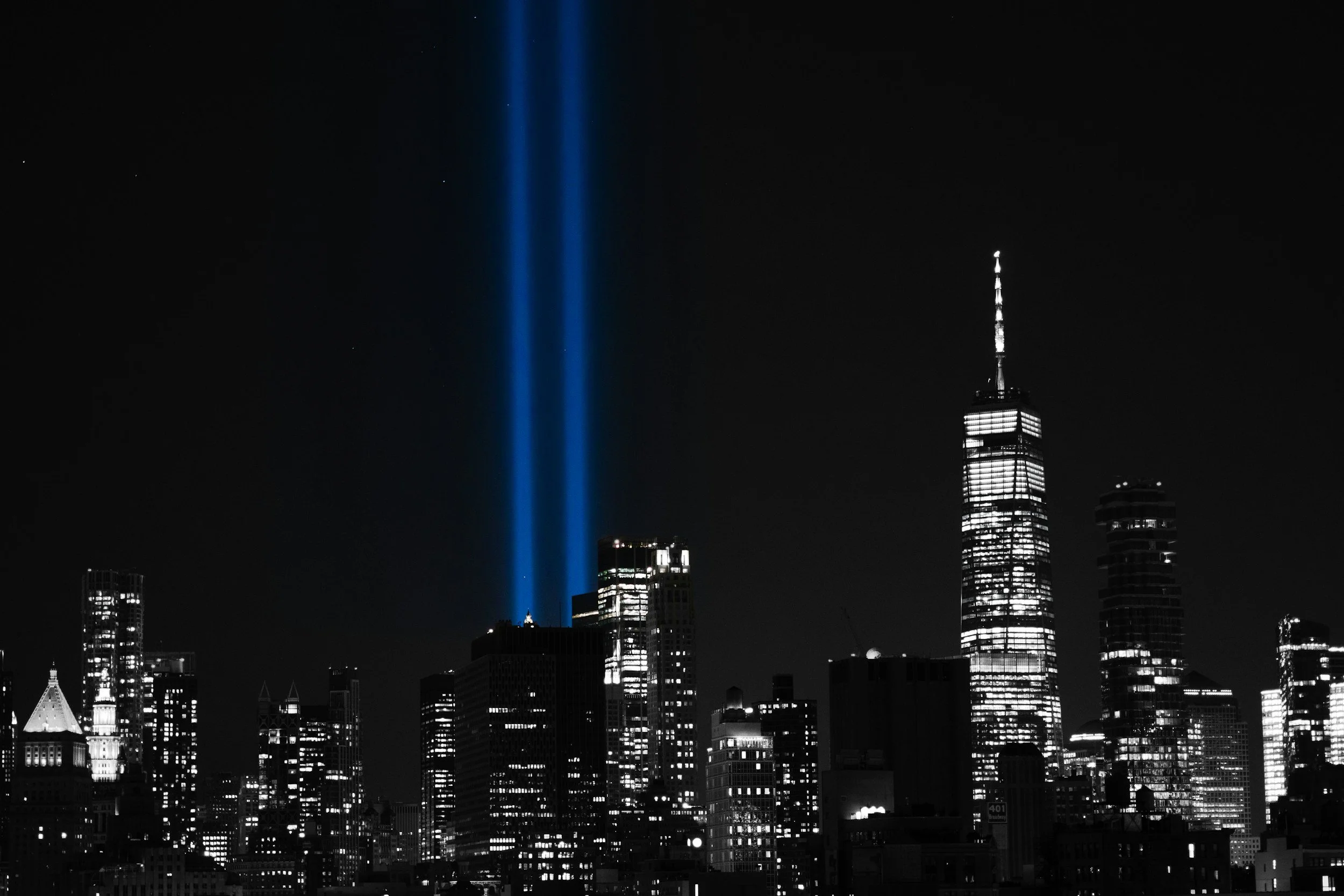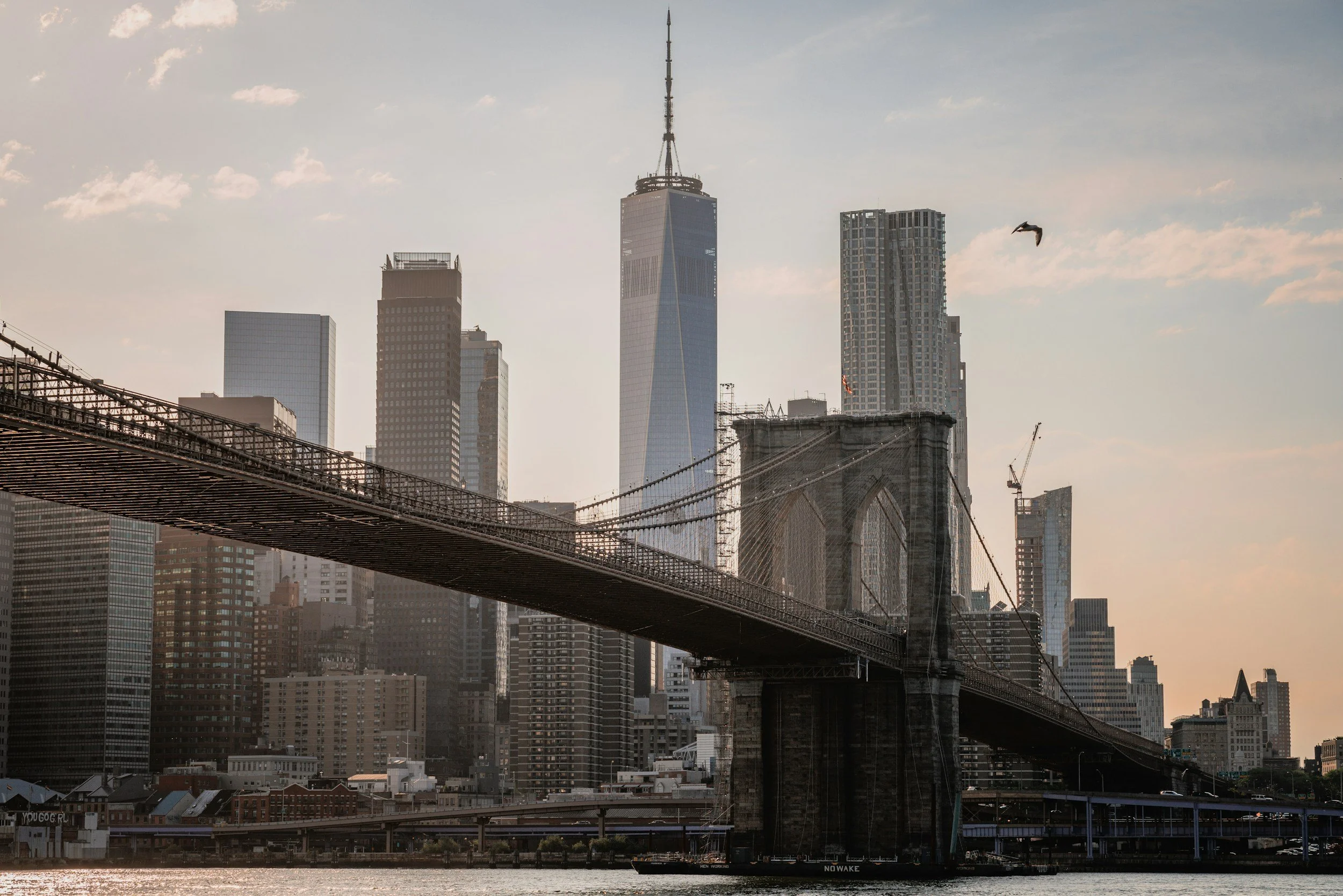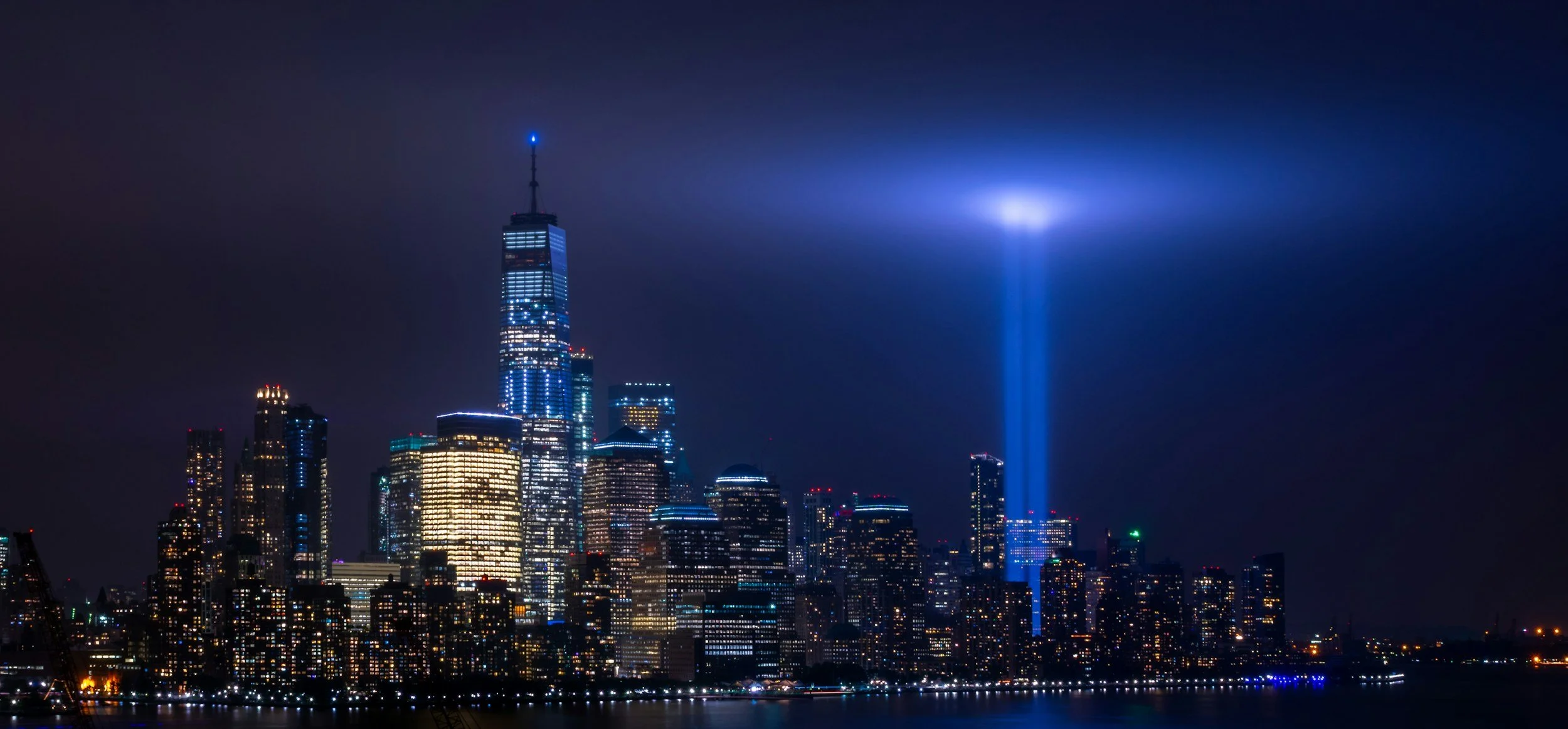
Welcome
to today’s Open Class: The 24th Anniversary of the 9/11 Attacks
11 September, 8:00PM-10:00PM
Today marks the anniversary of one of the most significant global events of the 21st century.
On September 11, 2001, four coordinated terrorist attacks fundamentally changed not just the United States of America, but the entire world's approach to:
International security & immigration policies
Global cooperation
Media portrayal of terrorism and technology’s role in radicalisation
Islamophobia & religious profiling
And many other aspects of our lives…
This makes 9/11 the perfect case study for General Paper analysis because it connects to virtually every theme you'll encounter.

Over the next 2 hours,
We'll transform your understanding of politics essays from "too risky" to "rich with possibilities."
Our journey today chronicles
The Immediate Impacts
How 9/11 changed American society overnight
Global Ripple Effects
International consequences for cooperation and the War on Terror
Modern Evolution
Contemporary terrorism and digital challenges
Essay Application
Turning tonight's learning into exam success
9/11's Immediate Impact
9/11's Immediate Impact

When I say "September 11th" — what's the first thing that comes to your mind?
Take a moment to think... we'll hear a few responses in 30 seconds.
Now… what do you think were the primary motivations for 9/11?
Take another moment to think... we'll hear a few more responses in 30 seconds.
"Imagine watching, on television, the first tower collapse live on September 11th, 2001. At first you — along with everyone else — think it's just a freak accident, a poorly-trained rogue pilot.
But you soon realise you're witnessing the world change in real-time as the second plane hits.
What you're seeing isn't just buildings falling — it's the fundamental social contract between governments and citizens being rewritten before your eyes.

George W Bush
Today, our nation saw evil
The Falling Man, taken by Associated Press photographer Richard Drew
This is one of the saddest photographs of the 21st century.
This nameless individual embodies the intimate loss within large-scale catastrophe — he is someone's loved one, coworker, and companion.
It’s a reminder that those who suffer from terrorism are distinct persons, not symbols of particular nations, faiths, or ethnic groups.
Picture this: your skin is burning, your lungs are choking on toxic smoke, and all you see is flames so intense they could melt structural steel. You're trapped nearly a quarter-mile above ground, with shattered windows and air filled with cries and aviation fuel fumes.
The decision is impossible — remain and burn to death or jump.
Some victims held hands. Others shielded their faces. Women held their skirts down as they jumped.
Their jump wasn't a choice to die but an attempt to flee.
No matter one's perspective on international conflicts or the grievances driving violence, this photograph proves that some actions surpass political rationalisation. No human toll can be justified through conflicting stories about liberation movements versus terrorist acts.

From “America the Fortress” to vulnerability awareness…
1.
Pre-9/11: Americans rarely thought about homeland security
Post-9/11: Colour-coded terror alert systems became a daily reality
2.
Before 9/11: 30-minute arrival recommendations at the airport, families could accompany passengers to gates, small knives and tools were allowed on planes, minimal background checks for airport workers were needed.
After 9/11: the Transportation Security Administration (TSA) was created and 2-3 hour early arrivals became mandatory, along with shoes, liquids, electronics screening.
General Paper & Politics
Common Student Fears:
"I don't know enough about history/politics"
"What if I sound ignorant or insensitive?"
"Politics is too controversial — what if I offend the examiner?"
"I might get the basic facts wrong and lose marks because of that"
"Other topics seem safer and easier"
Reality Check:
Examiners want critical thinking, not encyclopedic knowledge
Politics essays often have the richest examples and clearest arguments
You encounter politics daily — trust us, you know more than you think!
-
Immediate Consequences:
USA PATRIOT Act (passed 45 days later)
Uniting and Strengthening America by Providing Appropriate Tools Required to Intercept and Obstruct Terrorism
The PATRIOT Act sparked intense debate because it allowed authorities to hold immigrants indefinitely without court proceedings and permitted law enforcement to examine personal property and documents without informing or getting permission from the owners.
Muslim Registry (2002-2016)
NSEERS was a post-9/11 program (2002-2016) that required certain non-citizens to register with authorities through fingerprinting, photographing, and interviews. Registrants had to provide detailed travel plans, update officials about changes, and use only designated entry/exit points.
Targeted travelers from specific countries (24 of 25 were predominantly Muslim)
138,000+ individuals registered by 2003
13,153 placed in deportation proceedings
Bush administration claimed it caught 330 "known criminals" and 3 "known terrorists"
However, produced zero terrorism convictions despite 93,000 cases
ACLU and immigrant rights groups called it religious and ethnic profiling
Obama administration dismantled the program in 2016
Visa restrictions for 26 countries
These countries were predominantly Muslim (North Korea was the exception)
Long-term Consequences:
Millions of deportations under "security" justifications
"Special Interest" country designations
Enhanced screening for specific nationalities
Hate crimes against Muslims increased 1600% in 2001
Yet 99.9% of Muslims had no connection to terrorism
-
NATO Article 5 invocation: For the first time in NATO's history, the 9/11 attack on the US was treated as attack on all members
The UN Security Council Resolution 1373 was a unanimous passage that required all countries to deny funding/support to terrorists
SWIFT banking system allowed tracking terrorist funds across borders and international banking cooperation froze millions in terrorist assets
Countries began extraditing terrorism suspects to US for prosecution
-
Al-Qaeda's narrative: "Holy warriors defending Islam against Western crusaders"
US view: "Terrorists targeting innocent civilians"
Osama bin Laden's claims: Retaliation for US military bases in Saudi Arabia, sanctions on Iraq, support for Israel
Western response: No political grievance justifies mass civilian murder
The problem is that, as a propaganda tool, terrorists can claim "legitimate resistance" for motives.
-
"Inspire" magazine (2010): Online publication teaching bomb-making, targeting methods
Anwar al-Awlaki’s youtube videos inspired multiple attacks
The Boston Marathon bombers (2013) were radicalised through online Al-Qaeda materials and YouTube videos
The Times Square bomber was also inspired by Anwar al-Awlaki's online content
The Fort Hood shooter (2009) corresponded with al-Awlaki through email
The Charlie Hebdo attackers (2015) used online training materials from Al-Qaeda in Yemen

The War on Terror
Within 24 hours of 9/11, something unprecedented happened.
For the first time in NATO's 52-year history, Article 5 was invoked.
The world's most powerful military alliance declared that an attack on America was an attack on them all.
But this global solidarity would soon fracture as the 'War on Terror' expanded far beyond Afghanistan...
The United States’ mission?
Denying terrorists a safe haven in Afghanistan.
The U.S. invaded Afghanistan shortly after the 9/11 attacks against Al Qaeda and the Taliban, and after Afghanistan rejected the American President’s demand to turn over Al Qaeda leaders.
President Bush calls for the reconstruction of Afghanistan in a speech at the Virginia Military Institute. “By helping to build an Afghanistan that is free from this evil and is a better place in which to live, we are working in the best traditions of George Marshall,” he says, evoking the post-World War II Marshall Plan that revived Western Europe.
But the United States and its allies do not come close to Marshall Plan-like reconstruction spending for Afghanistan.
The U.S. Congress appropriates over $38 billion in humanitarian and reconstruction assistance to Afghanistan from 2001 to 2009.
https://www.cfr.org/timeline/us-war-afghanistan
Yet after nearly 20 years of war (from 2001 to 2021), it became evident than the U.S. military was unable to transform Afghanistan into a modern, stable democracy.
You can't impose democracy at gunpoint. The US tried to create a Western-style democracy in a society that:
Had no democratic traditions
Was organised around tribal/clan loyalties
Saw foreign occupation as illegitimate regardless of intentions
Had different cultural values around governance and society
This explains why the Taliban returned to power so quickly in 2021 — the US-backed government was always seen as an artificial construct.
"The collective punishment of communities for the actions of a few is always wrong."
Because of 19 hijackers' actions, 37 million Afghans were punished with 20-year war. In fact, more Afghans actually died than Americans in 9/11. At the same time, traditional governance in Afghanistan was actually dismantled and replaced with Western models, while rural communities were bombed for suspected Taliban connections.
Global Ripple Effects
Blowback Theory suggests that aggressive foreign interventions actually inadvertently create new enemies and threats.
Drone strikes kill civilians, radicalising survivors and communities
Military presence in Muslim countries was used as recruitment propaganda
Torture and detention abuses became rallying cries for extremists
Abu Ghraib photos damaged U.S. credibility and became recruitment tools
"Enhanced interrogation" techniques at CIA black sites violated international law
Guantanamo's legal limbo involved holding detainees indefinitely without trial
Discuss the view that all countries have an equal responsibility to counter terrorism
All countries:
Every nation-state globally, regardless of:
Economic development level (developed vs. developing)
Size and population
Geographic location
Political system
Historical involvement in conflicts
Consider if this should include failed states? Micro-nations?
Equal responsibility:
Identical expectations regardless of circumstances
Equal in what sense? (financial contribution, military involvement, intelligence sharing, legal frameworks)
Should contributions be proportional to GDP/resources or truly equal?
Counter terrorism
Prevention (intelligence, border security, education)
Response (military action, law enforcement)
Addressing root causes (poverty, political grievances)
International cooperation and information sharing
Legal frameworks and prosecution
-
All nations bear equal moral responsibility to counter terrorism because terrorism threatens universal human rights and democratic values. Moreover, effective counter-terrorism requires each country to contribute according to established international legal frameworks. As such, shared responsibility is both a moral imperative and a practical necessity.
-
The expectation of equal responsibility among all countries in countering terrorism is flawed because nations vary drastically in their economic capacity, security infrastructure, and proximity to terrorist threats. As such, differentiated responsibilities based on capability, resources, and direct security interests is more practical and morally justifiable.
The interconnected nature of modern terrorism demands equal responsibility from all nations because terrorist networks operate globally and threaten the fundamental principles of human security. This transcends borders. The 9/11 attacks, while occurring on American soil, involved terrorists who had trained in Afghanistan, planned in Germany, and included hijackers from Saudi Arabia and the UAE. Clearly, terrorism exploits weak links in the global security chain regardless of a nation's size or wealth. When countries like Somalia or Yemen fail to control their territories due to limited resources or political instability, they inadvertently become safe havens for terrorist groups that may eventually threaten distant nations. This can be seen with Al-Shabaab's international reach and Al-Qaeda in the Arabian Peninsula. As such, every nation benefits from international security and thus bears moral obligation to contribute within their means. The 2004 Madrid bombings and 2005 London attacks proved that terrorists view all democratic societies as legitimate targets. This means that no country can consider itself immune from future attacks simply because it hasn't been targeted yet. Moreover, international law principles establish that sovereignty comes with responsibility; nations that will not police their territories create security externalities that burden the entire international community. Clearly, shared responsibility is a legal imperative under UN Charter obligations to maintain international security.
However, expecting equal responsibility from all nations in counter-terrorism efforts is impractical and inequitable. The 9/11 attacks primarily targeted the United States, killing nearly 3,000 people and causing over $3 trillion in economic damage, making America the direct victim with the strongest motivation and justification for leading the response. In contrast, smaller nations like Bhutan or Pacific island states had minimal connection to the attacks and pressing domestic priorities unrelated to terrorism. While the U.S. possessed the economic prowess to pursue Al-Qaeda, expecting developing countries like Bangladesh or Honduras to contribute equally to military operations in Afghanistan would have been unreasonable. Similarly, the 2015 Paris attacks illustrated this disparity when France, as the direct victim, led the military response against ISIS in Syria, while nations like Rwanda or Nepal, despite being UN members committed to international peace, could not realistically be expected to provide equivalent resources given their limited military capabilities and lack of strategic interests in the region. The successful dismantling of terrorist networks requires targeted expertise, substantial financial resources, and sophisticated military technology that only a few developed nations possess. As such, it’s clear that effective counter-terrorism depends on leveraging the unique strengths of capable nations rather than demanding impossible equal contributions from all.
-
The first sentence of your paragraph must directly answer the essay question! As a general rule of thumb, your examiner should be able to figure out the essay question just by reading this sentence.
-
2-3 examples per paragraph make for a strong argument. Try to pick examples from different regions and industries for scope.

9/11 and the Internet
Conspiracy Theories
Meet Oliver. Like many of his friends, Oliver thinks he is an expert on 9/11.
He spends much of his spare time looking at conspiracist websites and his research has convinced him that the terrorist attacks on New York and Washington, DC, of 11 September 2001 were an inside job.
The aircraft impacts and resulting fires couldn’t have caused the Twin Towers of the World Trade Center to collapse. The only viable explanation, he maintains, is that government agents planted explosives in advance.
He realises, of course, that the government blames Al-Qaeda for 9/11 but his predictable response is pure Mandy Rice-Davies: they would say that, wouldn’t they?
Quassim Cassam, for The Intellectual Character of Conspiracy Theorists
“The towers collapsed due to pre-planted explosives rather than aircraft impact and fires”
“Government officials had specific advance warning but allowed the attacks to proceed”
What we DO know…
From the 9/11 Commission Report,
Binalshibh claims that during their time in Spain, he and Atta also discussed how the hijackings would be executed. Atta said he, Shehhi, and Jarrah had encountered no problems carrying box cutters on cross-country surveillance flights.
The best time to storm the cockpit would be about 10–15 minutes after takeoff, when the cockpit doors typically were opened for the first time.
Atta did not believe they would need any other weapons. He had no firm contingency plan in case the cockpit door was locked. While he mentioned general ideas such as using a hostage or claiming to have a bomb, he was confident the cockpit doors would be opened and did not consider breaking them down a viable idea.
Atta told Binalshibh he wanted to select planes departing on long flights because they would be full of fuel, and that he wanted to hijack Boeing aircraft because he believed them easier to fly than Airbus aircraft, which he understood had an autopilot feature that did not allow them to be crashed into the ground
It’s your turn:
"The collective punishment of communities for the actions of a few is always wrong." How far do you agree?
How do I tackle this question?
When tackling the question of whether collective punishment is "always wrong," you need to examine the fundamental tension between security concerns and moral principles.
The strongest argument against collective punishment rests on the principle of individual responsibility — the idea that people should only be held accountable for their own actions, not the actions of others in their community. This principle is deeply embedded in human rights frameworks and international law, including the Geneva Conventions.
Historical examples have demonstrated both the moral horror and practical failure of such policies, from Japanese-American internment during World War II to Israeli house demolitions in Palestinian territories. In fact, punishing entire communities for the actions of individuals often has the unintended consequence of radicalising moderates, as explained by the blowback theory.
Now on the working document, craft your own paragraph in response to this essay question.

We hope you found this a transformative class!
Thank you
Bare your soul
Your feedback helps us make your learning experience even better!

